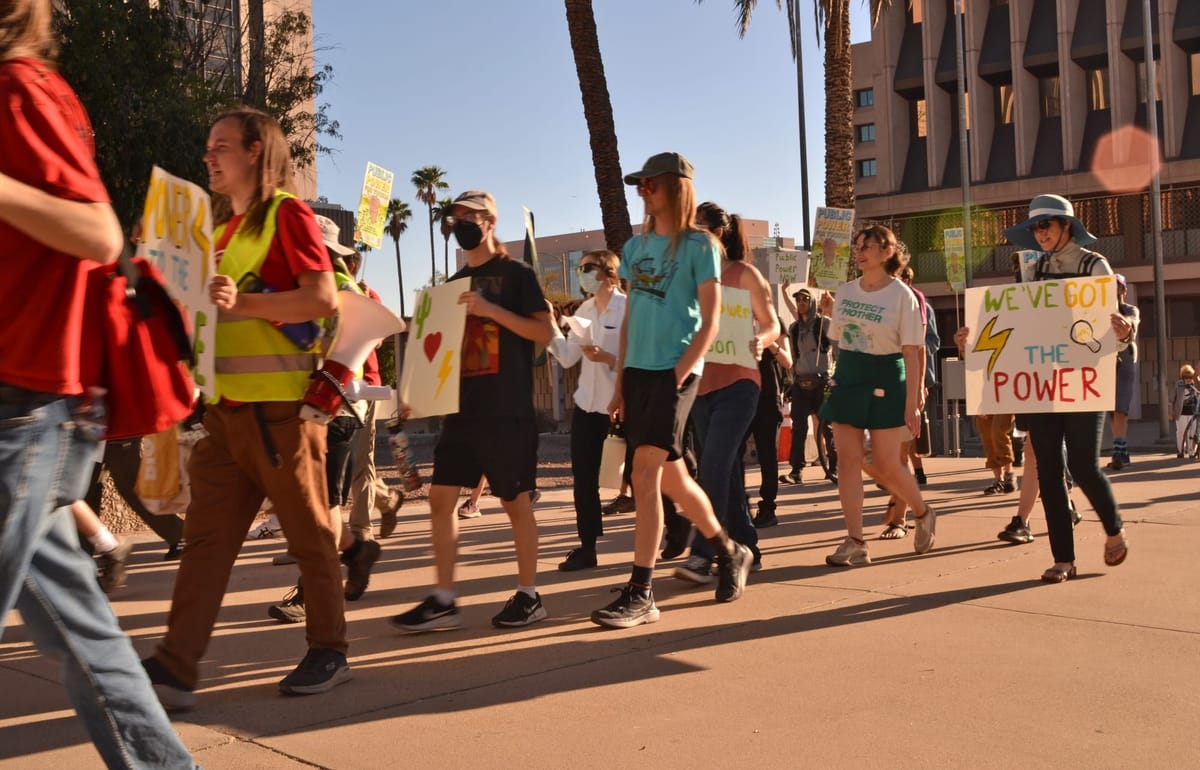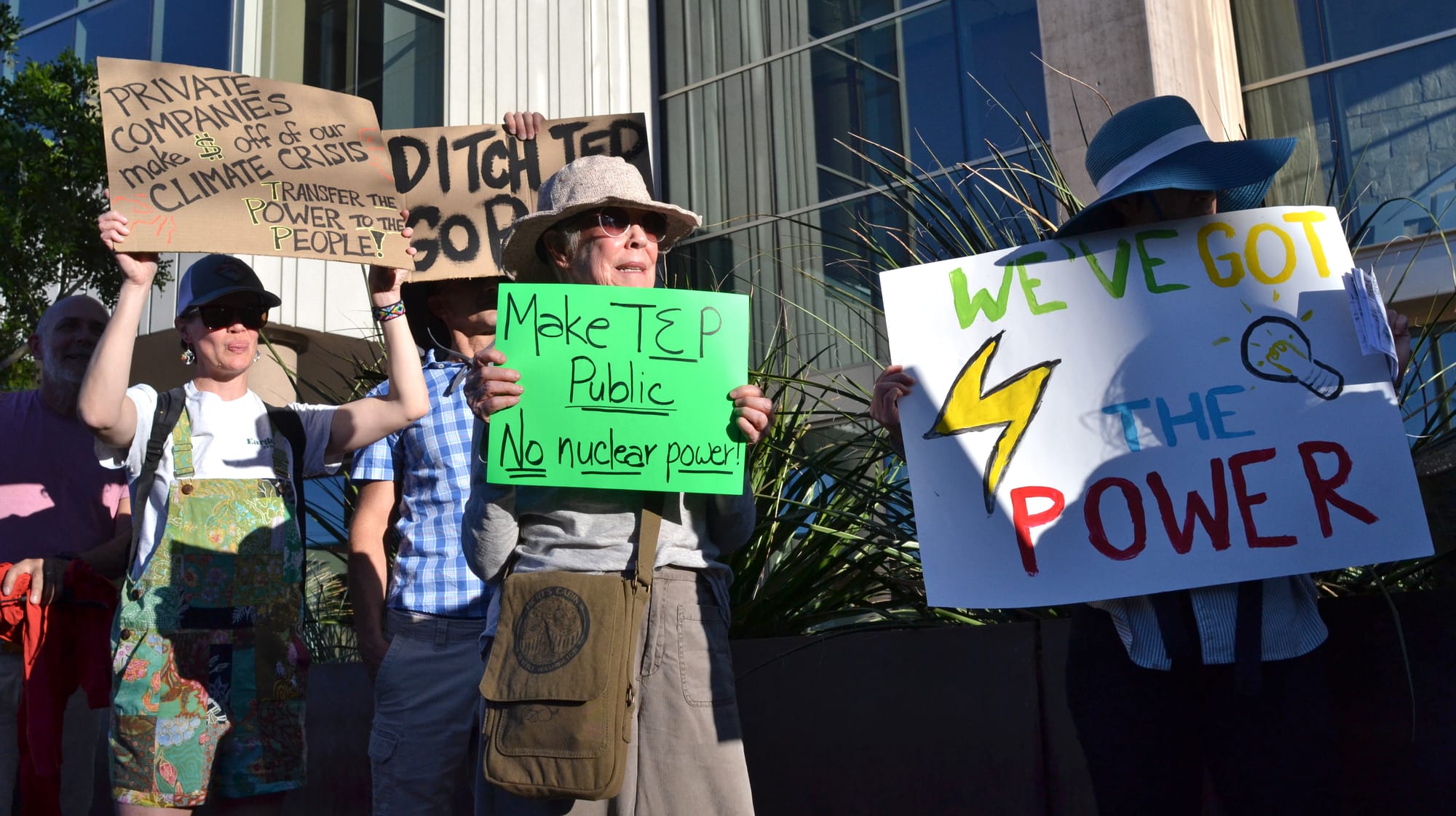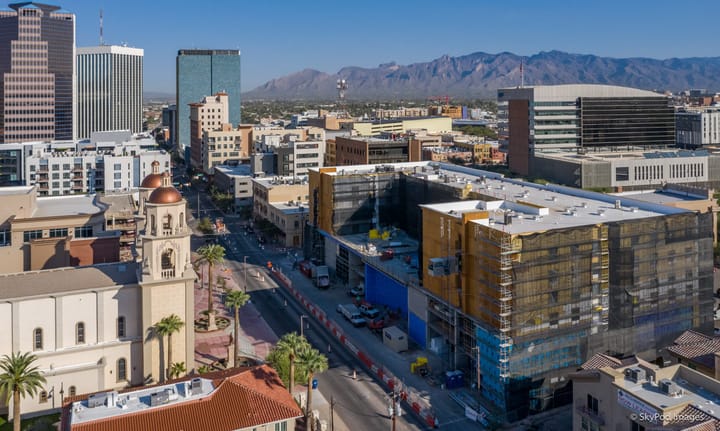Tucson council advances TEP franchise vote as protesters rally for public power
The Tucson City Council voted to send a new franchise agreement with Tucson Electric Power to voters in November, prompting protests from residents advocating for a publicly owned utility.

Dozens of community members protested outside City Hall on Tuesday after the Tucson City Council voted unanimously to bring a new franchise agreement with Tucson Electric Power to voters in November.
Protesters were calling on city officials to support a city-run utility system, saying that while high prices are still a concern, they don’t believe utilities should be privately owned.
The current agreement between TEP and the city is set to expire in April 2026, and voters shot down the last renewal attempt in 2023.
TEP and the city must come to a new agreement by July 1 in order for the special election for the renewed agreement to proceed in November as planned.
A renewed agreement would allow TEP to use city property to install power lines and other infrastructure in exchange for a fee, paid by customers to the city. The fee is set at just over 2% for Tucson residents.
After Tuesday’s 6-0 City Council vote to schedule a special election in November, Tucson Democratic Socialists led a march from City Hall to TEP headquarters, with residents holding signs and chanting, “TEP has got to go.”
Many complained that TEP’s rates are too high and said the company is not doing enough to address climate change.

Nearly 3,500 Tucsonans have signed petitions for public power, according to the group.
“Public power is popular, and we’re looking forward to the energy sourcing study results, which will likely show that a publicly owned utility is not only feasible, but would benefit working-class people in Tucson,” Tucson Democratic Socialists said in a news release.
It remains to be seen whether a public utility would lower prices, according to a preliminary study by GDS Associates to determine if public power is possible for Tucson.
The final report of the study is set to be released in May. A preliminary report reviewed by the City Council in January said it would cost $820 million or more to buy out TEP.
“I feel like this movement is important, especially in Tucson, where it’s getting hotter and hotter every year,” protester Cameron Capra told Tucson Spotlight. “I think public power could bring voting power back to Tucson, where it belongs. People can vote and make changes for the power company, as opposed to it being owned by a third-party company in Canada that doesn’t care about Tucsonans or how hot it’s getting here.”
Capra said he thinks most people can’t afford bills in the $300 to $400 range, which he said he pays for his three-bedroom home.
Tucson Democratic Socialists volunteer Cliff Mays has spent the past several months canvassing around the city for public power.
“We just want the city to take over TEP and make them publicly owned, since they keep raising rates for shareholder profits,” said Mays, who lives on a fixed income through Social Security and disability and said he struggles financially. “I have a 750-square-foot condominium, and it’s $250 a month. With climate change and ever-increasing demand in the summer, I think it’s important to have publicly owned electricity so we can offset the increased prices.”
Resident Ben Armentrout earns the median income for Tucson, which the University of Arizona reported was $67,929 in 2023, well below the state and national averages. He said his electric bill isn’t a massive strain financially, but still runs about $220 per month with his thermostat set to 80 degrees.
“I remember moving here in the summer, getting my bill, and then having to re-edit my budget because the bill was so high,” Armentrout said.
Tucson isn’t the only city where residents are fighting for publicly owned power rather than privately owned by Fortis, a Canadian conglomerate that owns TEP, Central Hudson Power and others.
Residents of Hudson Valley, New York, pushed for public power over the past year, with lawmakers ultimately introducing legislation to take over Central Hudson Power to form the Hudson Valley Power Authority, after customers claimed to be overcharged amid a rate hike.
“I support (eliminating) companies taking profits off of things that should be public goods or that are basic needs, like staying cool,” Armentrout said. “One hundred and forty-six people died here in Pima County last year from heat. I think that is unacceptable, especially when we have the wealth to keep people cool.”
Colton Allder is a journalism major at the University of Arizona and Tucson Spotlight intern. Contact him at callder1995@arizona.edu.
Tucson Spotlight is a community-based newsroom that provides paid opportunities for students and rising journalists in Southern Arizona. Please support our work with a paid subscription.




